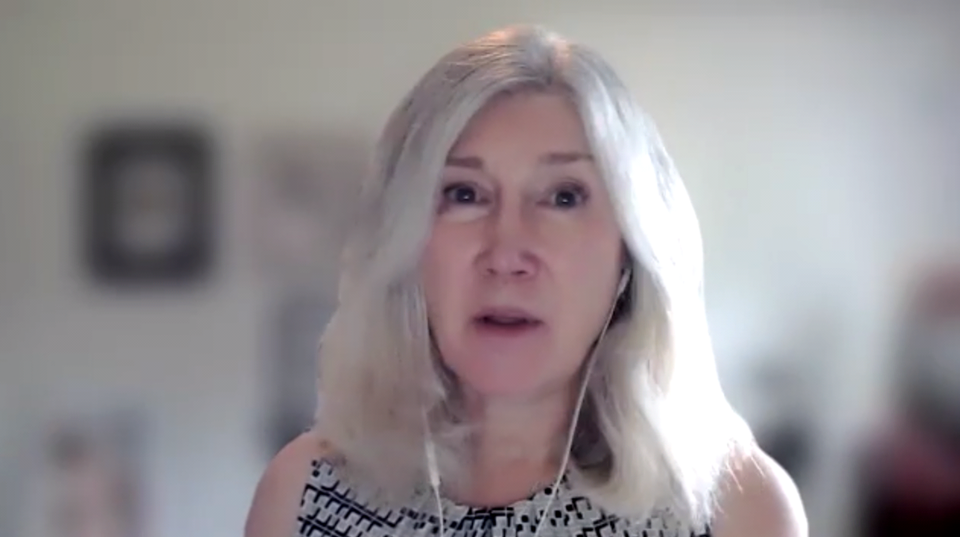On Monday, the region's top doctor Dr. Nicola Mercer, addressed some common COVID-19 myths during a vaccine information session hosted by MPP Mike Schreiner.
Mercer addressed concerns on spike proteins, pregnancy and children getting vaccinated. She also reminded the community that they are able to receive their first dose of the COVID-19 vaccination without appointments in the WDG Public Health region and urged others to get their second vaccination.
Here are some myths busted by Mercer.
Myth: Genetic Material in the COVID-19 vaccines will multiply in the body forever, changing your DNA.
"Messenger RNA can't actually interact with your DNA at all. It is not incorporating your DNA, it is literally a message," said Mercer.
“It only lasts for a very short period of time, just a couple of days, at most, and then it just breaks down and it's gone,” said Mercer.
Myth: People who are vaccinated can ‘shed’ the virus or spike proteins and infect others with COVID-19.
Mercer said this myth is actually based on a tiny bit of science.
She explained that vaccines for some viruses such as measles, mumps and rubella, are live vaccines. This means that those people receiving those vaccines can get a little bit of the virus and then shed it.
“But you can't do that with the COVID vaccine because COVID-19 is not a live virus vaccine, it is simply a message vaccine,” said Mercer.She said now instead of giving the body a dead or alive virus as has been done before, the new vaccine just sends a message telling the body what to do.
“So if you have received the vaccine you absolutely cannot shed or release any vaccine components to others around you,” said Mercer.
Myth: The COVID-19 vaccines cause infertility or miscarriage.
Mercer said there's absolutely no link between COVID-19 vaccines and infertility or miscarriage.
“These little spike proteins, first of all, that are made are not circulated throughout your body, they don't end up in your organs, they actually bind to the surface of your cells so your body makes antibodies to them and they can destroy those cells,” said Mercer.She said at the beginning of the pandemic, there was a disproportionate number of pregnant women on ventilators, some who were unable to see their new baby for weeks before they got better.
"So having COVID-19 when you're pregnant is a really bad thing. We don't want that," said Mercer.
She said in terms of fertility, there have already been hundreds and millions of vaccines in North America where birth rates are tracked.
“If they did cause infertility, we would have seen our birth rate decline. And that's not been the case. In fact, if anything, we've seen a slight uptick in birth rates during the pandemic and since the vaccine roll-out. There is no population level evidence that these vaccines cause infertility,” said Mercer.
Myth: Pregnant and/or breastfeeding women should not receive the vaccine.Mercer said vaccines are safe while you are pregnant and or breastfeeding. She highlighted that it is very rare for a pregnant woman to not receive a vaccine. She highlighted that vaccine concerns also exist during the flu season.
"We want to make sure that you don't get the flu while you're pregnant. And that's because, as I've said before, being pregnant and getting COVID-19 is really bad for you and your baby,” said Mercer."So we want to protect you and we want to protect your baby so if you are pregnant, please get the vaccine, I can tell you that locally, we have vaccinated at least 1,000 (pregnant) women.”
Myth: Corners must have been cut to develop a vaccine so quickly when it usually takes years.
“The interesting thing about these mRNA vaccines is that we have known about this technology for quite a long time from a science perspective so it has been a lab science-based development that's been there and has sat there on the shelf, needing money to take it to commercialize it,” said Mercer adding that the pandemic helped people around the world raise money to commercialize the vaccine.She also said that vaccine developments are usually done 'sequentially' where scientists complete step one, get it approved and then hop onto the next step which takes months. But with COVID-19 creating an urgency to develop the vaccines, the steps were done in a ‘parallel’ process.
“As soon as research was done, as soon as studies were under development, as soon as results were available, they had it in real-time. So, steps weren't done sequentially they were done at the same time as all these studies have been going,” said Mercer.Myth: The COVID-19 vaccine is not safe for children.
Mercer said Pfizer is currently approved for children 12 and older and she expects that Moderna will also be approved in the coming weeks.
Mercer said there are trials underway that will bring results in September regarding those under 12.
“Children are developing fantastic immune responses to these vaccines, and everything that I've seen in the literature about these studies is that they are safe and 100 per cent effective for children which is not surprising,” said Mercer.
She said results like that are not commonly seen in the elderly population whose immune systems are not as good.
Myth: It will make you magnetic.Mercer said there are no metals or microchips in this vaccine.
“There is no reason at all to be concerned about the COVID-19, containing metals or microchips,” said Mercer.
